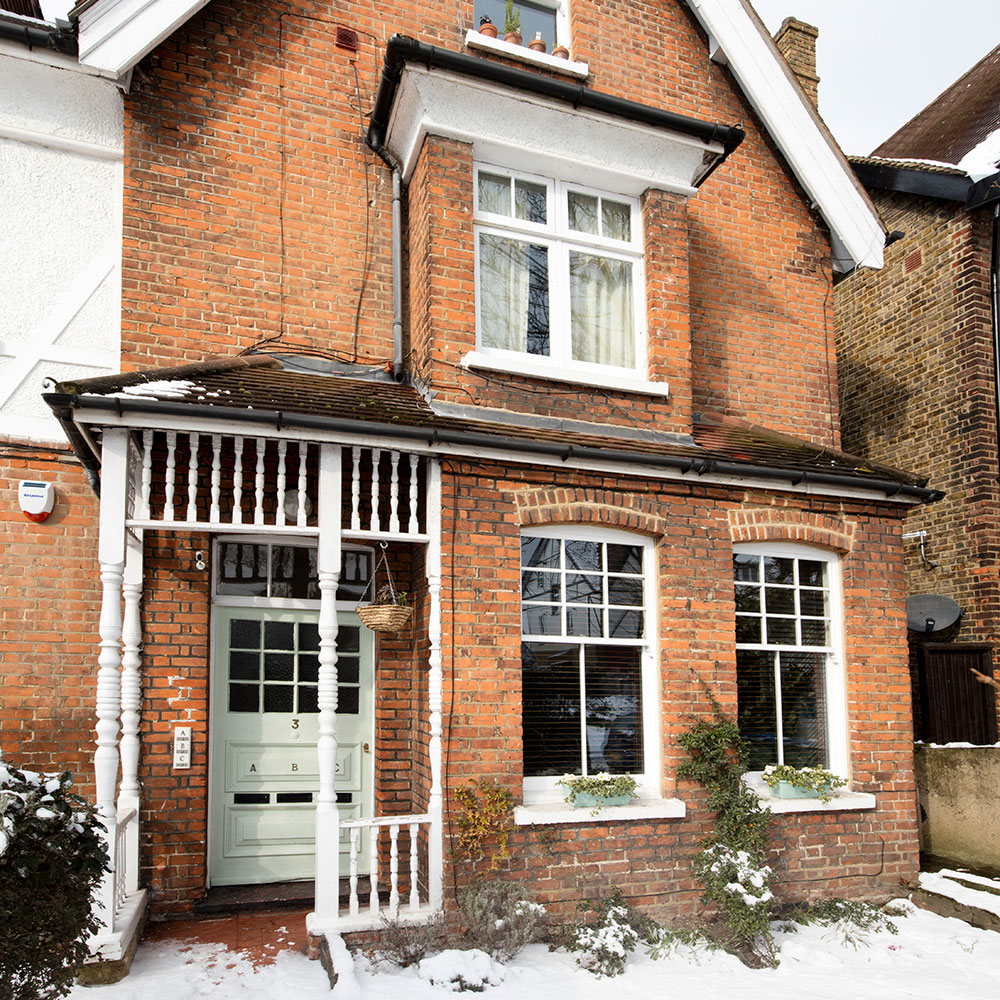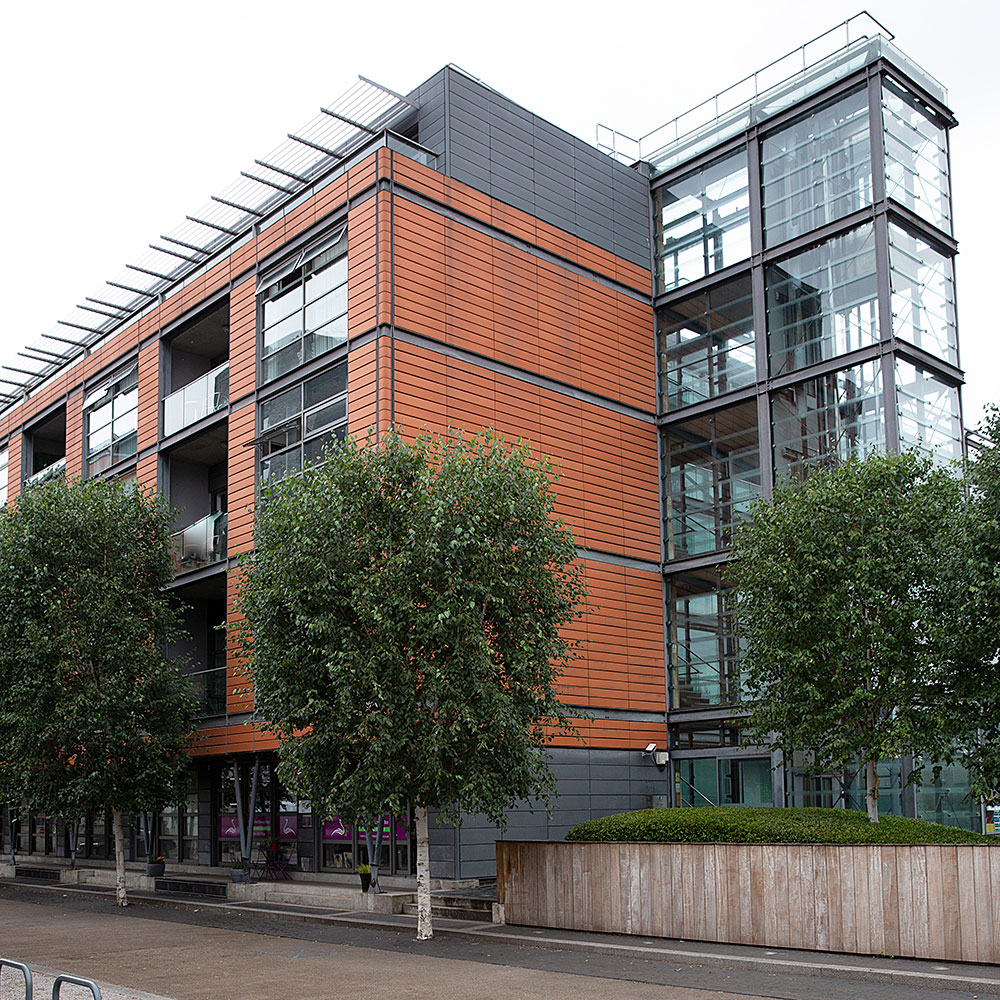Self-employed mortgage guide – how to get on the property ladder when you work for yourself
Don't rule out your chances! Follow our guide and you'll soon be on the next rung of the property ladder

Sign up to our newsletter for style inspiration, real homes, project and garden advice and shopping know-how
You are now subscribed
Your newsletter sign-up was successful
As if getting a mortgage isn't hard enough in this day and age, it appears to get a lot more complicated when you work for yourself. Meanwhile, the popularity of self-employment is steadily increasing, with recent figures from the Office for National Statistic showing that there are nearly 5 million self-employed people in the UK.
Get your finances sorted with more of our project planning advice
If your income is irregular, getting a mortgage as a self-employed professional can be complicated – especially if you don’t have three years’ worth of accounts to show. But you certainly shouldn’t rule out your chances. We've enlisted the help of Luke Somerset, Chief Commercial Officer of John Charcol, to put together this self-employed mortgage guide. Follow this advice, and you can get your mortgage sorted with the minimum of cost and hassle.
Is it more expensive to get a mortgage when you’re self-employed?

Firstly, let’s debunk the myth that self-employed people face much higher mortgage payments. You just need to be able to supply enough information about your income. 'You should then qualify for the same mortgage deal as a person with the same salary in a full-time position,' says Luke.
'There's one main reason why self-employment could mean a more expensive mortgage,' he adds. 'And that's if you are turned down by a mainstream lender and must apply through a specialist lender that deals specifically with self-employed borrowers.'
Proving your income – what do you need to do?
Sorry folks, but it's a sad fact that when you’re self-employed and apply for a mortgage, you’ll have to provide significantly more paperwork. This is mainly to prove your income, as an employer can’t vouch for your wage. 'In general, the longer you’ve been self-employed for, the better,' says Luke. 'Particularly, as there are fewer lenders who will be willing to provide a mortgage for only one year of accounts.'
'Most lenders prefer accounts to be prepared by a chartered or certified accountant. They will also want to see the income you’ve reported and the tax you’ve paid to HMRC, so have these documents ready.'
Sign up to our newsletter for style inspiration, real homes, project and garden advice and shopping know-how
The different self-employed statuses

For contractors and freelancers, mortgage lenders will most likely multiply your day rate by the number of working days in the year. Most will also want to see at least a years’ worth of contract history, as well as proof of future commission.
When assessing sole business owners, mortgage lenders will look at whether your businesses’ income has increased or decreased in recent years. If it’s increased, they’ll take an average from the past two to four years, or if it’s decreased, they’ll probably use the lowest figure.
What if you’re recently self-employed?
If you have only recently became self-employed it can be more difficult to secure a mortgage on a home. But don’t give up hope, as there are still lenders that will consider you. 'Make sure you’ve got evidence of regular work and provide proof of future commissions,' advises Luke.
When this is the case, it’s best to consult an independent mortgage advisor. We recommmend companies like John Charcol or London & Country. They can give you access to a wide range of specialist lenders, who can judge each application on its individual merits and circumstances, giving you more chance of success.
How to increase your chances of securing a mortgage

There’s no escaping the fact that your chances of getting a mortgage will increase significantly by having a large deposit. 'It will also help you secure a lower rate and reduce your monthly repayments,' says Luke.
A clean credit history will also boost your chances of getting a mortgage. Be aware that as a business owner, the lender will credit check both you and your business. 'It’s important to make sure your credit history is in as good a shape as possible,' says Luke. 'You can check your credit score and history for free with a company like Experian – order a report and ensure you’ve settled any unpaid or late debts.'
Applying for a mortgage
Before applying for any mortgage, it’s important to get advice from both your accountant and a mortgage broker. A mortgage broker is invaluable when applying for any mortgage and – even more so if you are self-employed. They will understand the lenders that are willing to lend to self-employed clients, and most importantly, will be able to help you find the best deal.
Related: Saving for a deposit on a house? These unusual ways of raising cash are absolute genius!
Top mortgage tips for self-employed professionals
- Wait until you've been self-employed for at least one year before applying
- Have your accounts prepared by a chartered or certified accountant
- Keep records of the income you've reported to the HMRC and the tax you've paid
- Give evidence of regular work and provide proof of future commissions
- Save for a deposit well in advance of applying for a mortgage
- Check your credit rating and settle any debts
- Consult an independent mortgage advisor who has access to specialist lenders

Amy Cutmore is an experienced interiors editor and writer, who has worked on titles including Ideal Home, Homes & Gardens, LivingEtc, Real Homes, GardeningEtc, Top Ten Reviews and Country Life. And she's a winner of the PPA's Digital Content Leader of the Year. A homes journalist for two decades, she has a strong background in technology and appliances, and has a small portfolio of rental properties, so can offer advice to renters and rentees, alike.